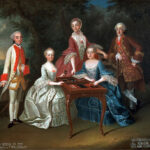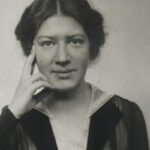The 2025 Queer Studies Conference (Web)
Time: 28.-30.03.2025
Venue: Univ. of North Carolina Asheville
Proposals by: 15.11.2024
The UNC Asheville Queer Studies Conference (established in 1998) attracts a diverse audience of activists, academics, community members, and artists who showcase a range of creative and scholarly pursuits related to the study of sexuality, gender, and/or queer and trans identities. The organizers especially welcome presenters from historically marginalized populations, including but not limited to, LGBTQIA+, Black, Brown, Indigenous, disabled, poor, and/or immigrant communities.
The 2025 conference theme is “Cultivating Resilience, Centering Joy.” While queer life can be marked by oppression, it can also be defined by the joy that endures through community. The work of resisting academic and political attacks on queer lives can become daunting, isolating, and draining, which makes it all the more important to turn inward and to our allies for sustenance and renewed energy. When the world feels turbulent and impossible, what is it that brings us hope and possibility? How do we sustain momentum in the face of apathy and counter-resistance? What can we do to prepare a new generation for thriving in the work that is not easy, but must be done? Elaborations on the theme might include (but are not limited to):
- What connections between mind and body will help us sustain ourselves and our work?
- How do we learn to have difficult, transformative conversations that effectively challenge oppressive narratives and behaviors?
- In what ways can art be a means of joy and resistance?
- What mentorship possibilities can we develop for our queer and trans youth?
- What can educators do to cultivate inclusive classrooms while operating under increasing surveillance, scrutiny, and censorship?
- What tools can we add to our emotional toolboxes to withstand the onslaught of attacks on trans and queer lives? Read more … (Web)
Source: Qstudy-l mailing list

 DFG-Gradiertenkolleg 2227 „Identität und Erbe“
DFG-Gradiertenkolleg 2227 „Identität und Erbe“  FWF-Projekt „Adelige Geschwister. Vermögensarrangements und soziale Konfigurationen“; Margareth Lanzinger, Claudia Rapberger und Florian Andretsch
FWF-Projekt „Adelige Geschwister. Vermögensarrangements und soziale Konfigurationen“; Margareth Lanzinger, Claudia Rapberger und Florian Andretsch  Waschsalon Nr. 2
Waschsalon Nr. 2